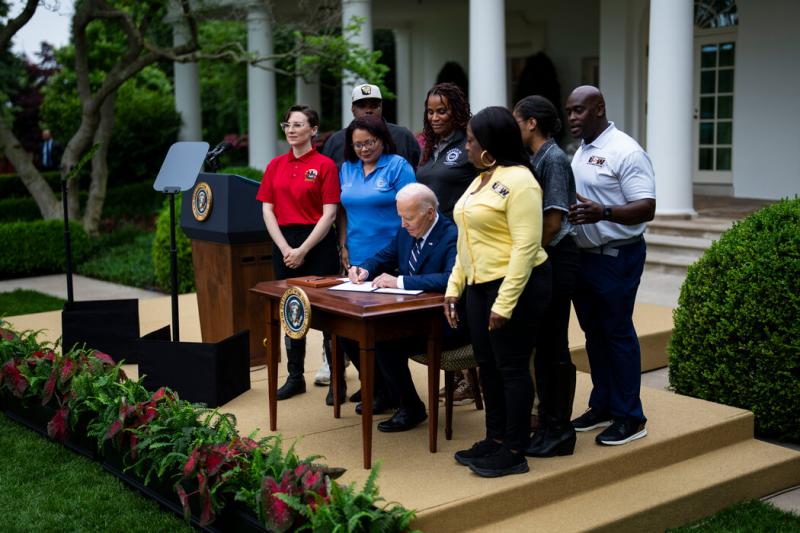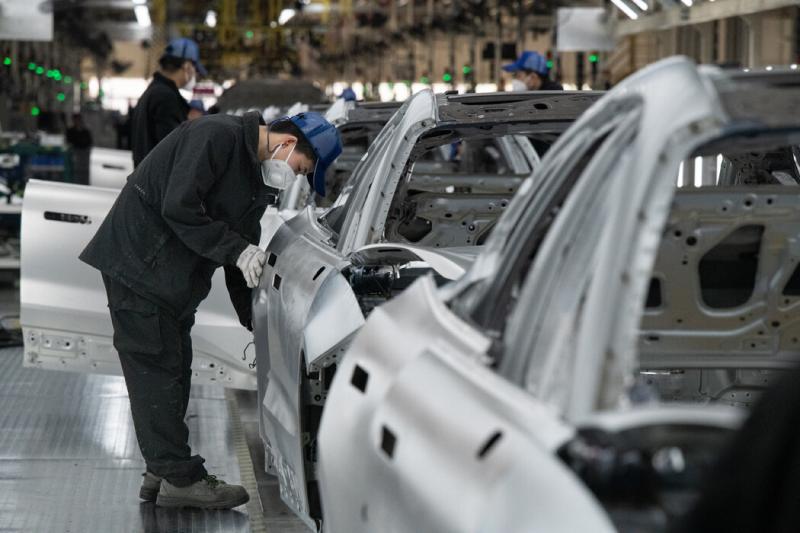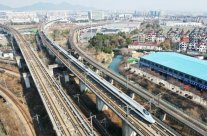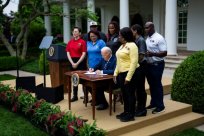
In the first two decades of the 21st century, many consumer goods on the American store shelves became cheaper.Import waves from China and other emerging economies help reduce the cost of video game consoles, T -shirts, dining tables, household appliances and other products.
These imported products have closed some American factories.Discount stores such as Wal -Mart and Amazon and online retailers make great money by selling low -cost products manufactured overseas.But voters made resistance.Under the stimulus of the failure of the factory, the industry depression, and the long -term stagnation of wages, Americans selected a president who vowed to fight back China in 2016.Four years later, they chose another one.
Former President Trump and President Biden have taken some of the same actions, trying to regain and protect American factories by increasing the cost of purchasing Chinese products.They have levied taxes on imported products in the traditional industry (such as clothing and electrical appliances) that have been hollowed out in the past quarter century (such as clothing and electrical appliances) and imported products that are difficult to grow in global competition with China (such as solar panels).
Biden decided to incorporate Trump's tariffs into the law and upgrade it, which clearly shows that the United States has ended an era of decades.The income from coming, not the loss of manufacturing jobs with concentrated geographical location.From one tariff rate, we can see the end of this era: 100%tariffs imposed on Chinese electric vehicles, these cars with less than 10,000 US dollars have poured into sales halls around the world, but it has always been difficult to break through the US government as the United States for the United States for the United States.The barriers set by the market.
Democrats and Republicans once worked with China for economic contact. Their theory is that the United States will benefit from outsourcing to those countries that can produce certain commodities at lower costs.Low wages.Economists know that some American workers will lose their jobs, but they said that by providing consumers with low -cost goods and allowing companies to invest in high -value industries with innovative advantages in the United States, the overall economy will benefit from it.
Now, both parties are competing to cut off the connection with China.Members have adopted a stronger and tougher stance on China.
It is unclear what kind of decision -making will bring in the new era of political incentives: Bynden's strategic industrial policy, Trump to a more self -sufficient domestic economic transformation, or completely different things.
It is also unclear whether the United States public that is still plagued by the fastest inflation in 40 years can endure the pain caused by the transformation.
"The old consensus has been broken, and the new consensus has not formed," said David Otto, an economist of MIT.He participated in the pioneering research of the so -called "China Intellectual" at the beginning of the century. At that time, China joined the World Trade Organization, which led to a large loss of manufacturing and employment in developed countries.
Dani warned that consumers and voters were "impossible for both beauty.""You have to make a choice. The whole world is doing a choice. If you want to keep the United States in these technologies and re -gain leadership, you must pay more. Even if this is not necessarily possible."
Although Biden and Trump support various forms of protectionism, in their second campaign competition, the two of them put forward a very different point of view to voters about how the US economy should deal with China.
Trump hopes to demolish commercial bridges between the two largest economies in the world and restrict trade on the whole.He promised to raise tariffs on all Chinese imported goods, cancel the "most beneficiary" trade position that Congress voted to China at the end of the Clingon government, and completely banned some Chinese products.He will levy new taxes on all imported goods from all over the world.
Trump bluntly claims that it is China, not American consumers who pay the price for these tariffs, although there are detailed economic research to draw a contrary to conclusions.However, his former trade representative and the influential Robert Littichizer in Trump's trade discussion told the New York Times reporter at the end of last year that it is worth it to use higher consumer prices for increasing the employment of manufacturing.
"Some people think that consumption is the purpose," Leitchizer said."My point is that production is the purpose, and a safe and happy community is the purpose. You should be willing to pay for it."
Biden refused to accept Trump's plan, saying that it was too broad and the cost was too high.He hopes to use tariffs and other regulations to establish a protective fortress around strategic industries such as clean energy and semiconductors.Biden also provided billions of dollars in government subsidies to these industries, including subsidies provided by green energy technology by reducing inflation methods.
"Investment must be combined with trade law enforcement to ensure that the recovery we see throughout the country will not be impacted by low -cost export products in China," the White House National Economic Commission Director Lyle Brened in his speech on Thursday's speech on Thursday's speech on Thursday's speech on Thursday's speech on Thursday's speech on Thursday on Thursday on Thursday on Thursday on Thursday, Thursday gave a speech on Thursday's speech on Thursday's speech on Thursday's speech on Thursday's speech on Thursday.express."We have learned from the past. In the United States, there will be no second China impact."
Many economists who continue to support the reduction of trade restrictions on China have criticized the plans of two candidates, not only because they may increase prices.They said that Trump and Biden's policies may slow down economic growth.They said that cutting off the competition from China may force enterprises and consumers to spend money on expensive domestic products caused by humanity, rather than spend on new innovative products that can create new industries and new employment opportunities.

"Large -scale over -expenditure in these areas will damage our productive forces," said Glen Hibard, an economist at Columbia University, who led the White House Economic Consultant Committee during his former President George W. Bush.
Some Democrats said that to establish a long -lasting and successful trade policy for China, Bayiden's preferred approach should be to increase expenditure, including a new round of subsidies that may be semiconductor and other high -tech manufacturing industries, and further strengthened law enforcement.The Ohio Democratic Senator Sheore Brown has always been a hawk in Congress to China and trade issues. He urged Biden to completely ban electric vehicles from China.
The former assistant of Biden, the current Economic and Social Initiative of the Economic and Social Initiative of William and Flora Hugolt Foundation, urged the government to combine industrial policy expenditures with stricter regulations to restrict capital acceptanceThe purpose of this money.For example, she hopes to strengthen the compulsory requirements for domestic automobile manufacturers to transform to electric vehicles and impose more stringent restrictions on stock repurchase to force companies such as semiconductor manufacturers such as semiconductor manufacturers to increase investment in R & D investment.
"This has opened a more difficult chapter. I think that in the history of American industrial policies, I have tried much less in this area," Harris said."Let the industry really stand the test of the industry."
She also said that if Biden's policy could not help quickly reduce the price of the United States, voters would be dissatisfied with these efforts.She said: "Americans want both to take care of them. When the price rises, they will become irritable."
Public opinion survey shows that voters have been very dissatisfied with the rise in prices, which is related to the chain chain and the stimulus measures of the government and the government and the central bank when they get rid of the new crown.
concerns about inflation is affecting the opportunity to re -election in Biden.Biden's current and ex -assistants hoped that if Biden won re -election, these problems would not affect his economic policy strategy.If Trump is re -entering the White House, the price brought by the new tariffs continues to rise may also damage his support.
These political issues have brought uncertainty to the China policy in the new era.Hobrd hopes to see the retreat of protectionism, re -adopt the so -called more traditional trade policy view: implement global rules and vigorously invest in national innovation to maintain advantages. IfYour industry is snatched by global competitors, then spend a lot of money to re -train unemployed workers so that they can find new jobs.
He admits that American voters are not interested in such policies.Harris think so too."Knowing what the political consequences brought by the first round of elections are to put the same movie again, this is simply suicide," she said.
Ortor said that from an economic perspective, he did not want to return to the era of trade with China.He generally praised Biden's efforts in industrial, including his policy on China, but he said that Biden should "give up" the economic sector that has supported some costs that has been overturned by China, such as solar batteries.
His latest research warns that improper trade policy design will bring economic dangers, but it also explains why presidents may continue to implement improper policies.In a papers recently co -authored with several economists, Otto found that Trump's practice of tariff -centered has not successfully brought many factories to the United States.
But the author found that this policy seems to have won more votes for Trump's popularization of his political parties.




